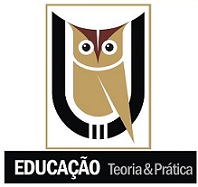The Sociology of Childhood: an outline of a map
Keywords:
Sociologia da Infância, Crianças, Socialização, Culturas Infantis, Metodologias.Abstract
Since 1980th, and more evidently from 1990th, the Infancy Sociology has been expanding and consolidating as theoretical field for both education thoughts and culture of little child. Researches from Portugal, France and England, among others, have showed contributions and relevance of this field, considering different themes and theoretical arranges. This paper intent to put together different Infancy Sociology points of view aiming to draw an overview of their principal themes and assumptions. In this perspective, it was adopted the infant central character, concerned with the idea that kids are social authors and that the concepts about what are child (or infancy) are socially constructed. The socialization processes are also discussed and questioned, since they are important for the called infant culture. These themes, and their methods, are a challenge for Infant Sociology and may permit us to enhance what we know and what we make with and for infant.Downloads
Published
How to Cite
Issue
Section
License
Authors who publish in this journal agree to the following terms:
a) Authors assign copyright to the journal, with the work simultaneously licensed under the Creative Commons Attribution License that allows sharing of the work with acknowledgment of authorship and publication in this journal.
b) The policy adopted by the Editorial Committee is to assign copyright only after a period of 30 months from the date of publication of the article. After this time, authors interested in publishing the same text in another work must send a letter to the Editorial Committee requesting the release of the assignment of copyright and wait for a response.
c) This journal provides public access to all its content, since this allows greater visibility and reach of published articles and reviews. For more information on this approach, visit the Public Knowledge Project, a project that developed this system to improve the academic and public quality of research, by distributing OJS as well as other software to support the public access publication system to academic sources. The names and email addresses on this website will be used exclusively for the purposes of the journal and will not be available for other purposes. This journal provides open any other party  This work is licensed under a Creative Commons License
This work is licensed under a Creative Commons License










